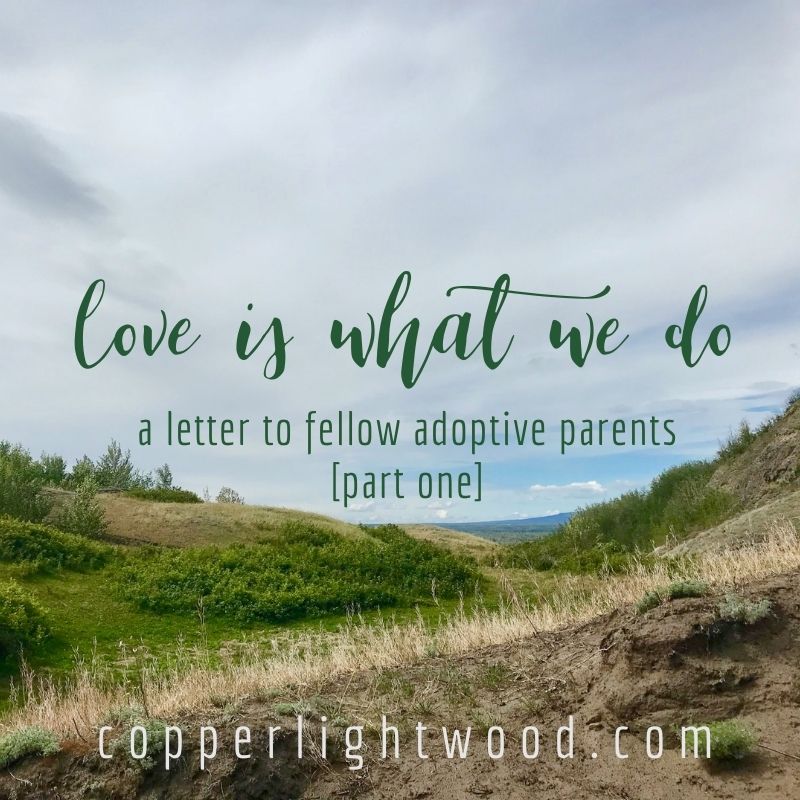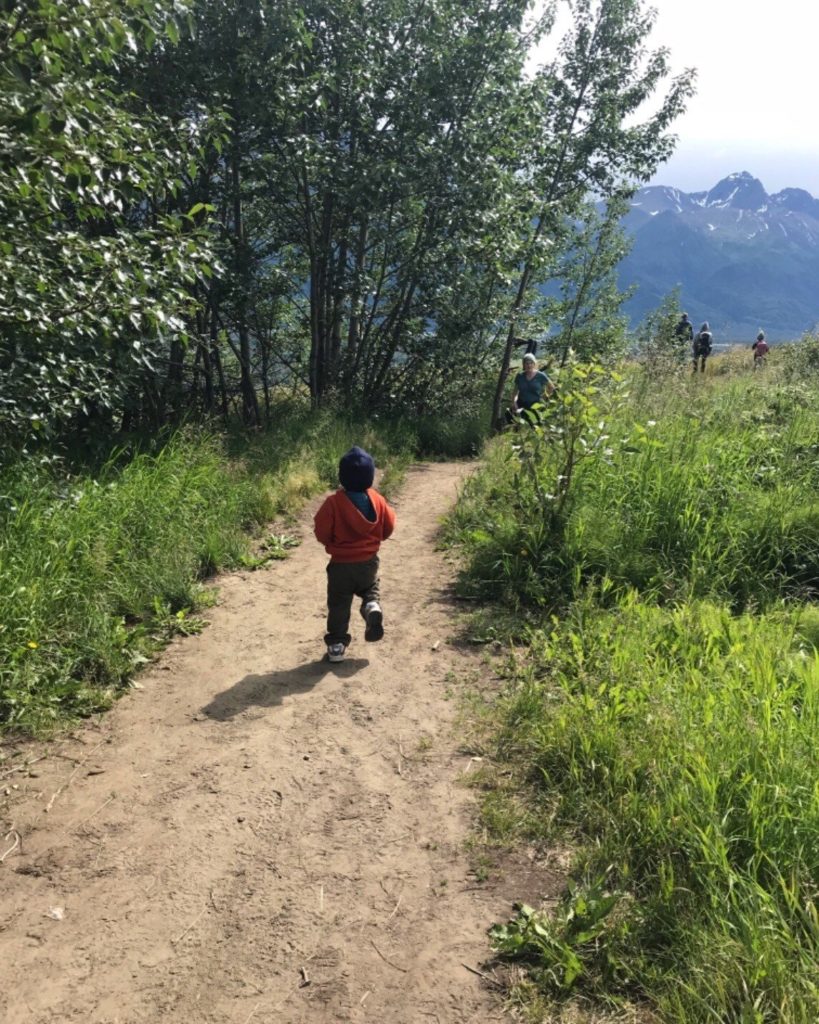In a patch of the yard, a two-year-old boy plays in a dirt pile with his red plastic shovel. You can’t really see him but you know he’s there because of the haze of dirt suspended eighteen inches off the ground in that general area, floating lazily to the west.

And down the hill, an older boy gathers a bucket of dirt. But no, he’s not doing it for fun, but as a consequence for refusing to do school. He didn’t tell us he didn’t want to school in so many words; that would be easier but it would also mean admitting responsibility and being honest. Instead, he expresses his desire to not do school by pretending to be unable to do very simple things that we know he can do. On this particular day, he pretends not to know what the word “opposite” means, in spite of the definition and examples right in front of him in his language arts assignment. He has known what the word opposite means for many years, but today he doesn’t want to admit it. So instead of doing school, he does the opposite of everything his language arts assignment asked him to do. Ironic, hmm?
We cannot fix these choices for him. He has had so many terrific days, and made such amazing progress in the last year. But progress is scary (I feel like I tell you guys this all the time) and consequences are safer. A big world of freedom is unpredictable and uncontrollable, and when the anxiety gets to be too much he reels it in by some type of self-sabotage and makes his world very small again. Small is familiar and safe.
Adoptive parents contact me all the time, and their stories are so precious to me. It is both hard and healing to read them; it is so easy to slide into hopelessness because of how huge some situations are, and yet we need to hear from each other because we need to know we’re not alone.
You, friend, reading this: Looking at that impossible situation with that kid, or that spouse, or those neighbors, or that school, or that social worker. You are not alone.
Our stories are all different but the themes are the same, and many of our details overlap. The grief over our kids’ choices is so intense. The secondary trauma from their behaviors is so real. And the loss of our expectations, of what we imagined things would be like when we chose adoption or foster care, is something that we have a hard time letting go of. Because if we let go of those expectations, it feels like we failed. It feels like admitting defeat.
But it’s not admitting defeat. It’s not lowering our standards. It’s not failure.
It is surrender. It is acknowledging that we are not in control, we are not responsible for someone else’s choices, and we are not the savior of this child or these circumstances.
We need to remind ourselves this. And when we have a hard time reminding ourselves, we need to remind each other. God has not left us to deal with this alone, He has given us each other to speak life and truth into when we cannot see clearly for ourselves. The haze of dirt is too thick; our own frustrations and worries are too loud.

So let me remind you of a few things. I’m reminding myself, too:
You are the expert of your kid. Professionals are only as helpful as they are, well, helpful. You probably already know that, for example, some counseling does more harm than good depending on the counselor’s experience. Many professionals claim to be experts when they only have book, lab, or office understanding of these issues but no boots on the ground experience with adoption and special needs. Those who don’t have dirt under their own fingernails often have no problem piling 23 more tasks, responsibilities, and suggestions into your lap when they get to clock out at the end of the day and deal with normal life and probably even get a full night’s sleep.
The true experts are the parents who are doing this day in and day out. Sucks though, right? So hear me: Parents, you are doing a better job than you give yourselves credit for, and you are not responsible for your child’s behavior, choices, or progress.

Yes, you influence them. But no, you don’t make their choices for them or decide how they will respond to any number of triggers or events throughout the day. That is not on you.
Healing for all of us will take time. And some of our adopted kids may never want a relationship with us. We cannot force them to do anything, and coming into their lives at such a late date, our influence was so limited.
– adoptive mom
And those extra 23 responsibilities that might be amazing? You know, the supplements, therapies, classes, programs, books you should read, videos you need to watch, skills you need to learn, songs you should sing, and all the other parts of the hokey pokey? It’s not worth squeezing them into your week if, in order to do so, you have to start eating 3-minute meals and taking one-minute showers and skip going to the bathroom and sleep only three hours a night. Oh wait…many of you are already doing that.
Well. You pick what works for you and your family, but the rest of those 23 tasks can take a hike because you have got to get some rest and eat a decent meal a couple times a day. You are not doing anyone any favors if you die on the altar of someone else’s well-meaning to do list. (Seriously, friend, don’t make me use my mom voice.)
The best thing we’ve learned to do in those hard seasons, whether it is with our kids or our spouse or another close relationship, is to pray that we will like them as we are loving them (and to pray that we will be likeable, too). Because when they are likable, when we are likeable, the atmosphere is lighter and the joy isn’t something you have to fight for. It’s easier to get out of bed and face a new day with hope when we like each other.

“Fake it till you make it” isn’t sustainable, and we need real hope to hold on to when we don’t see things improving. So here’s some comfort: When someone is still not likeable and we are still being loving toward them, we are actually “doing” love that is truer to the definition of it.
Because love is more of a verb than a feeling.
If you love those who love you, what benefit is that to you? For even sinners love those who love them. And if you do good to those who do good to you, what benefit is that to you? For even sinners do the same.
– Luke 6:32-33
Jesus loved us when we were not likeable, too, and His kindness led us to repentance. When we start to learn about loving like He does, it changes us into someone we never could have become had we stayed inside out of the dirt, with our cute shoes and clean fingernails.
And friends, we’ll talk more about that in just a couple days, in part two.
________
Related: Don’t Make Me Use My Mom Voice: a free 1-hour training on adoption, attachment, and discipline that will leave you empowered, equipped, and refreshed for the days ahead.
